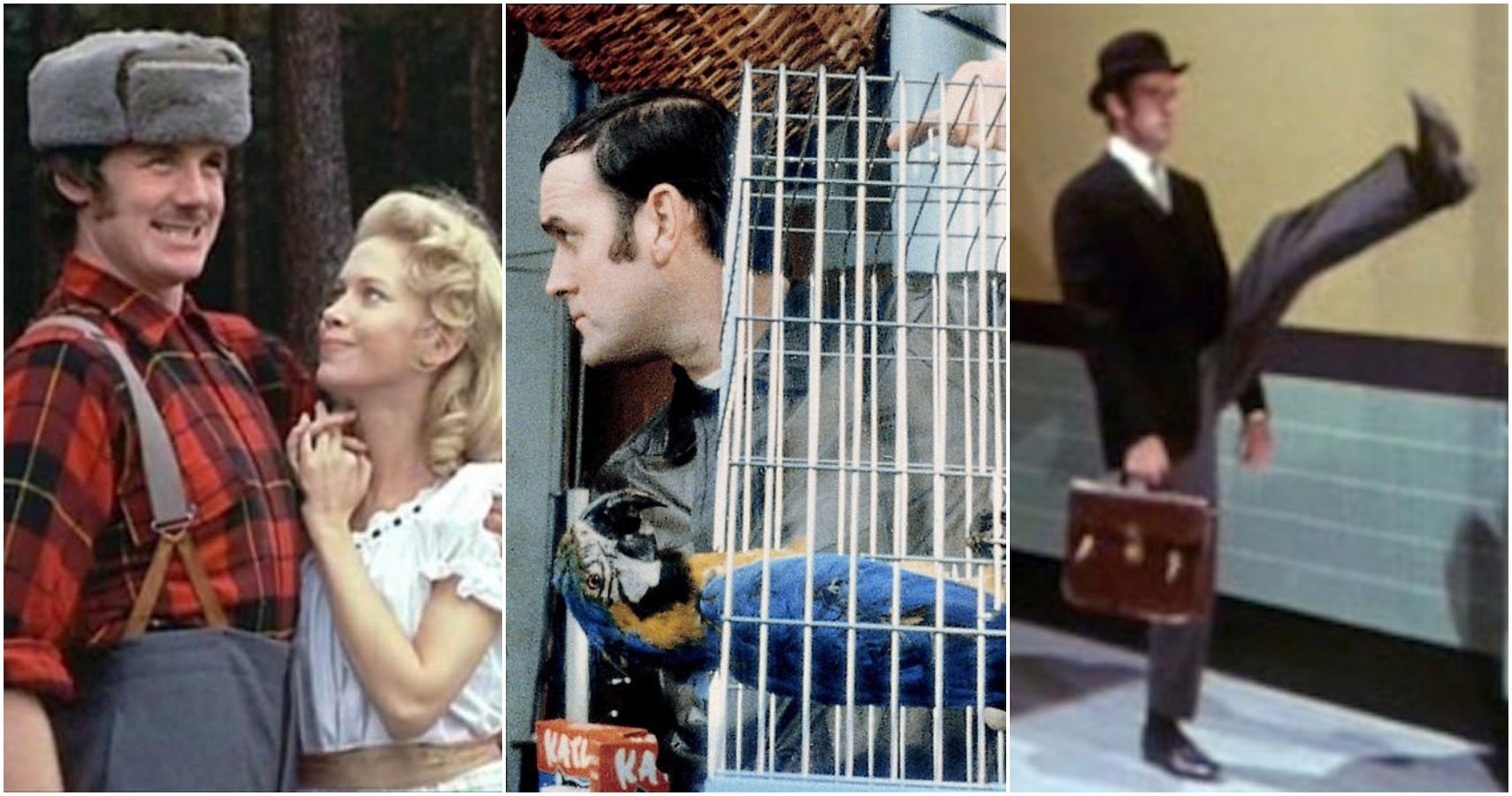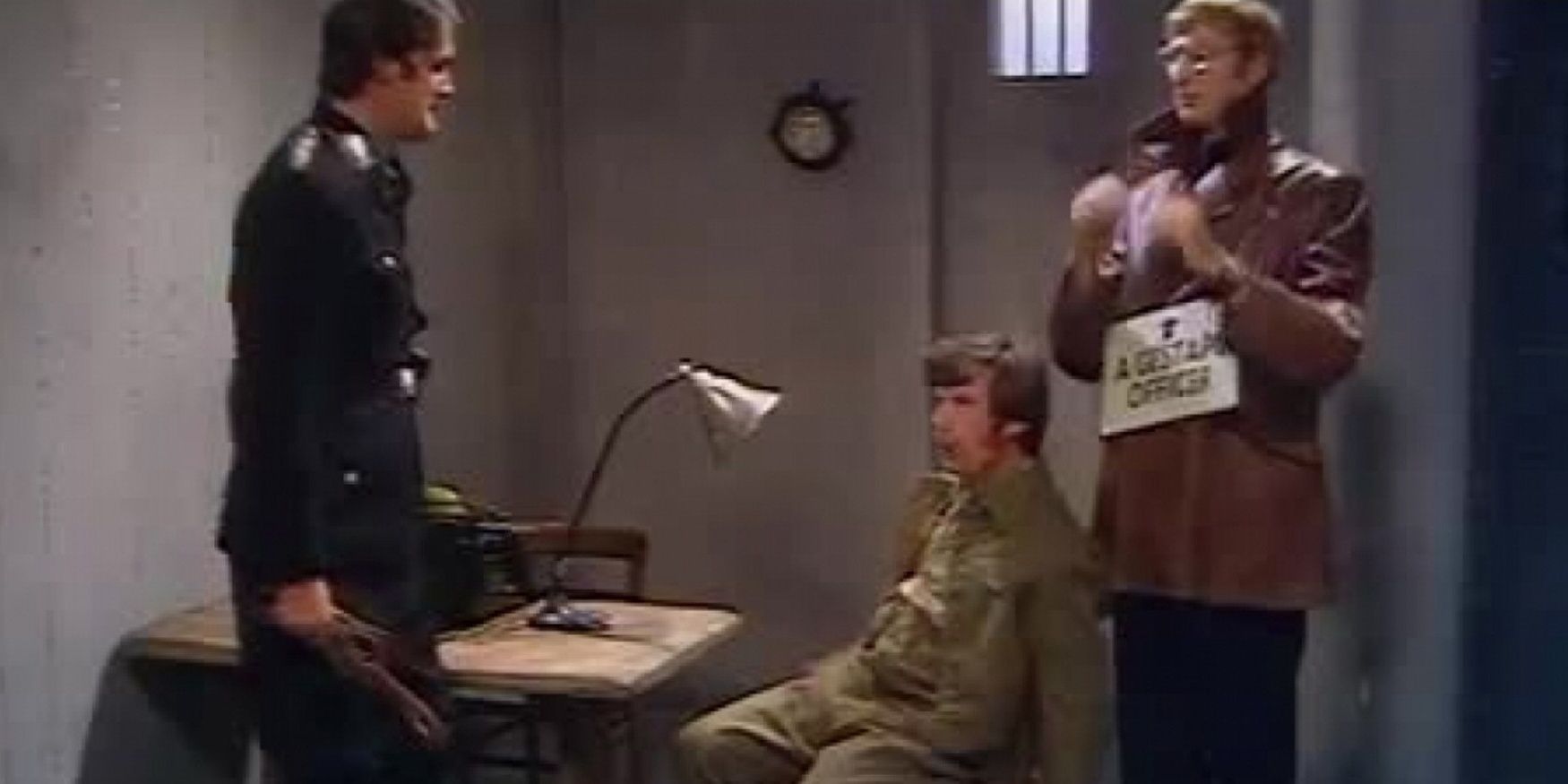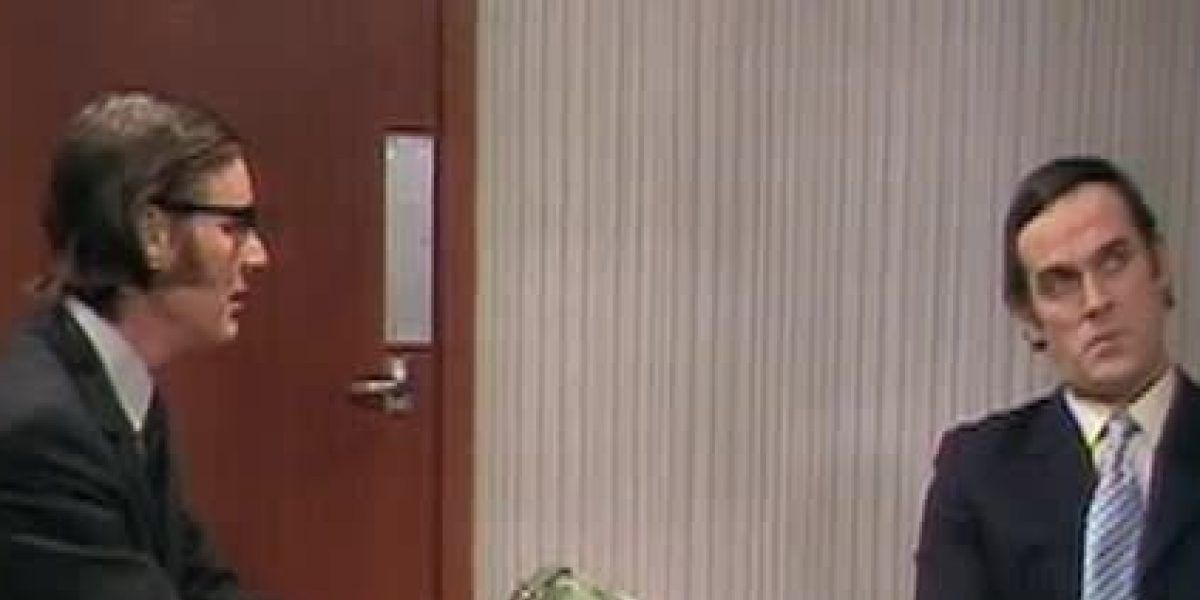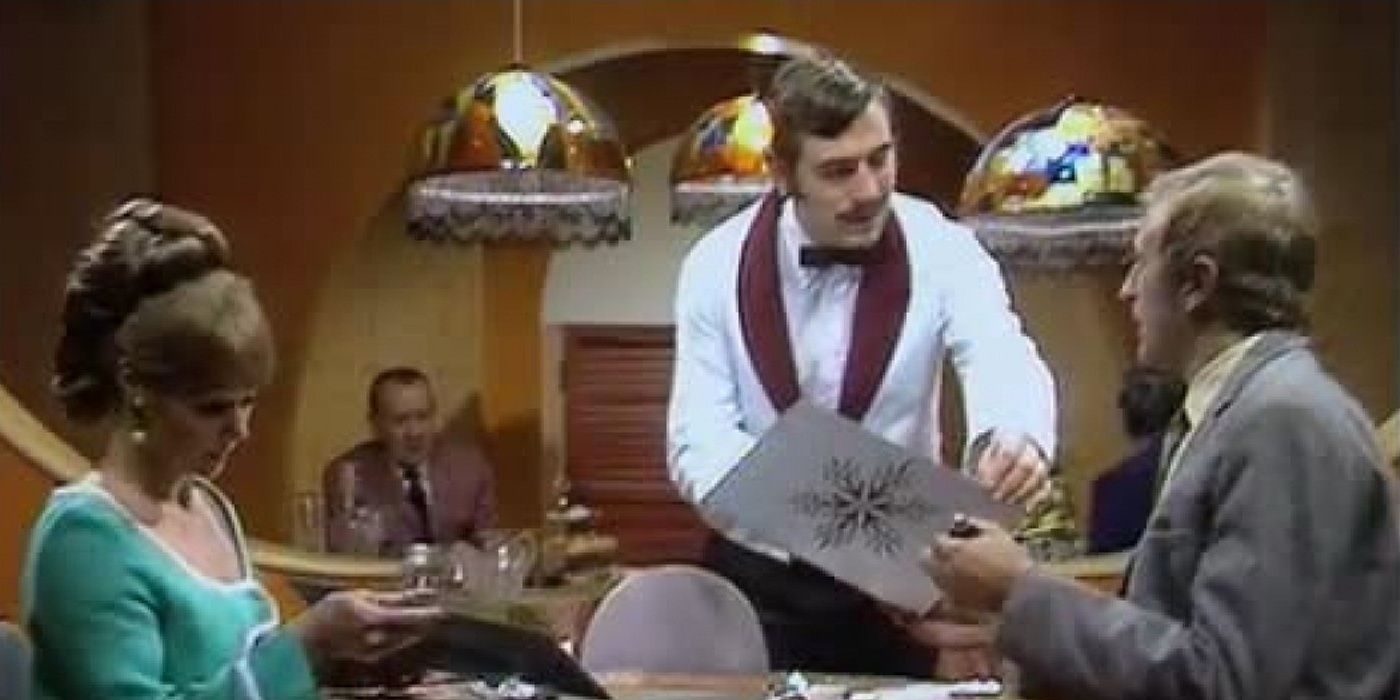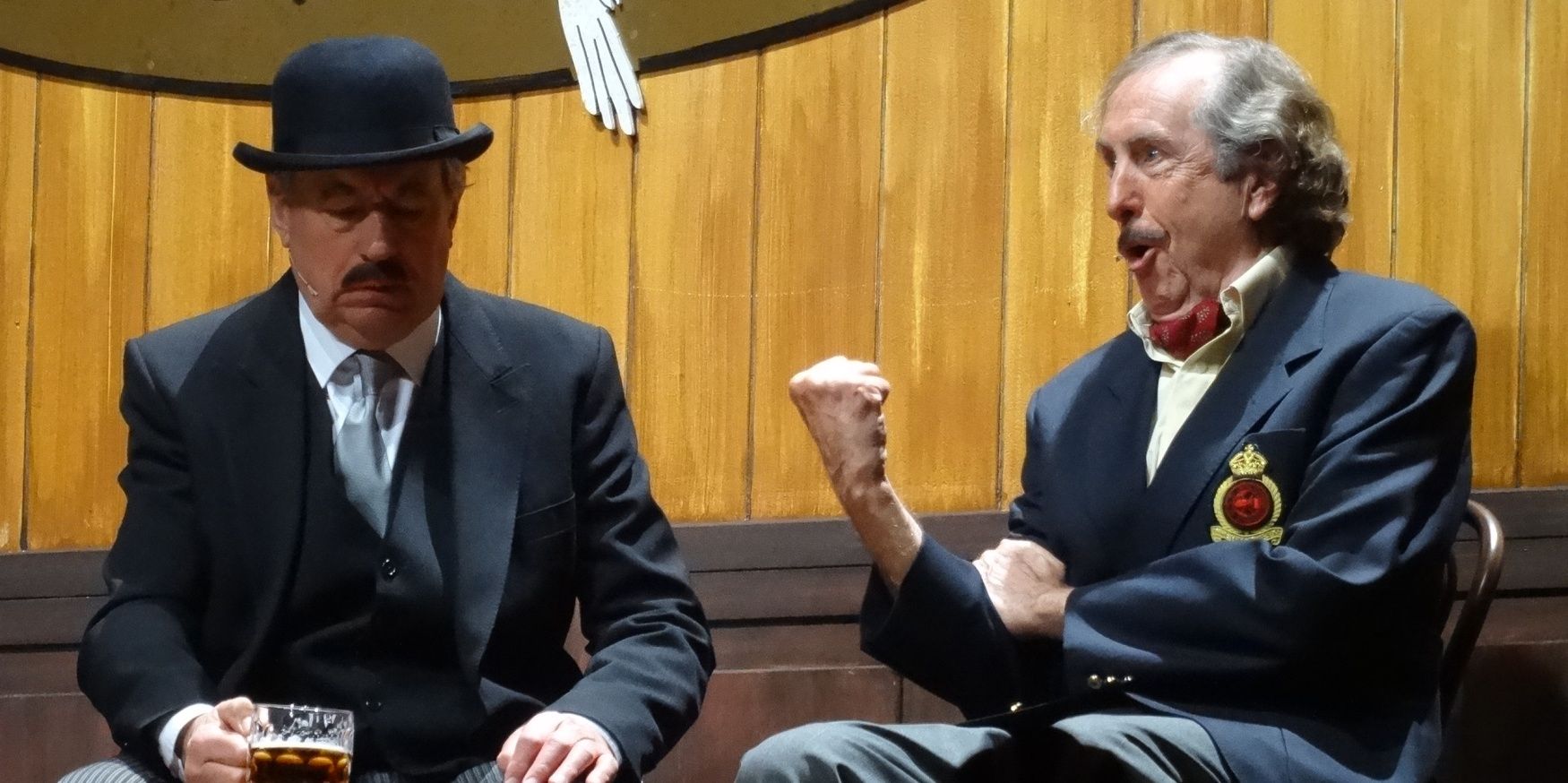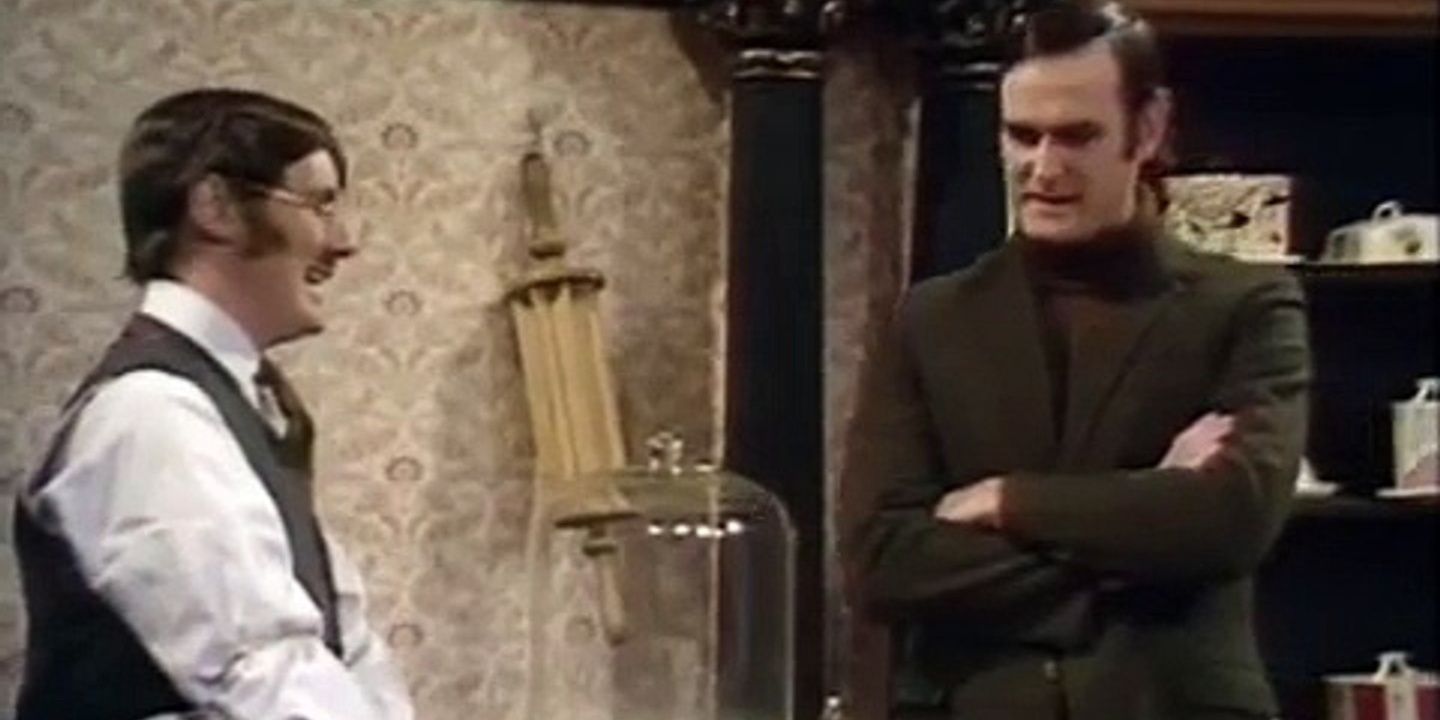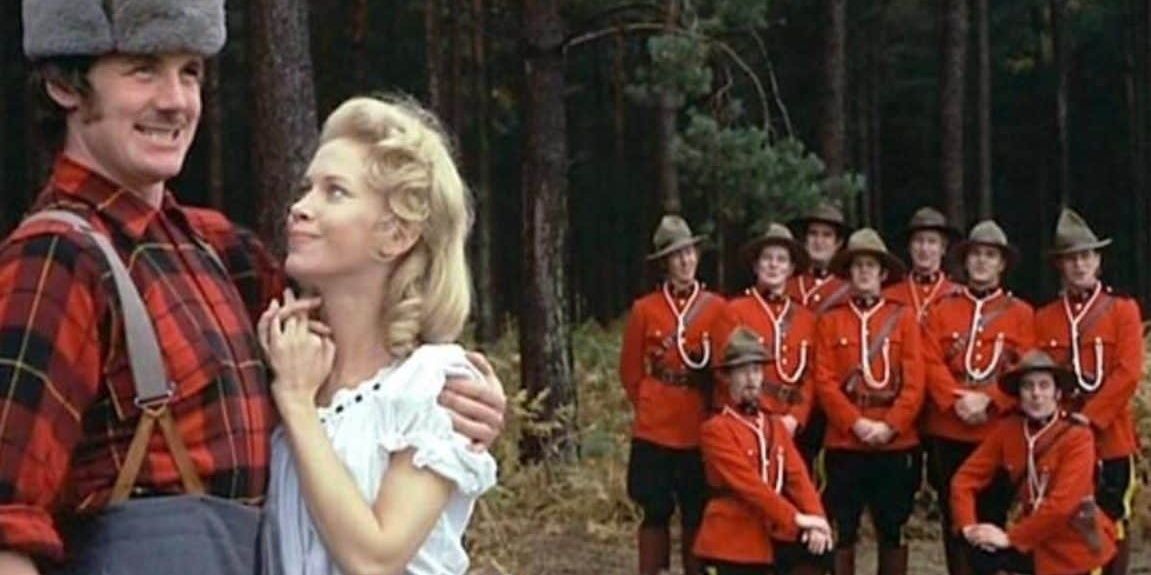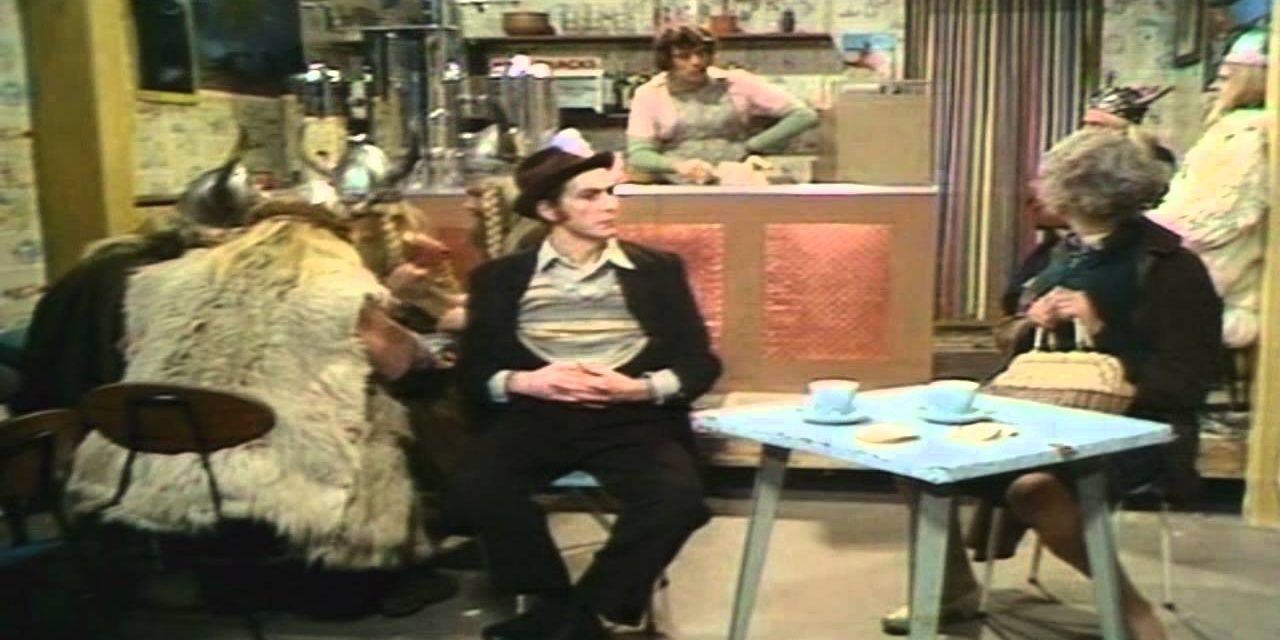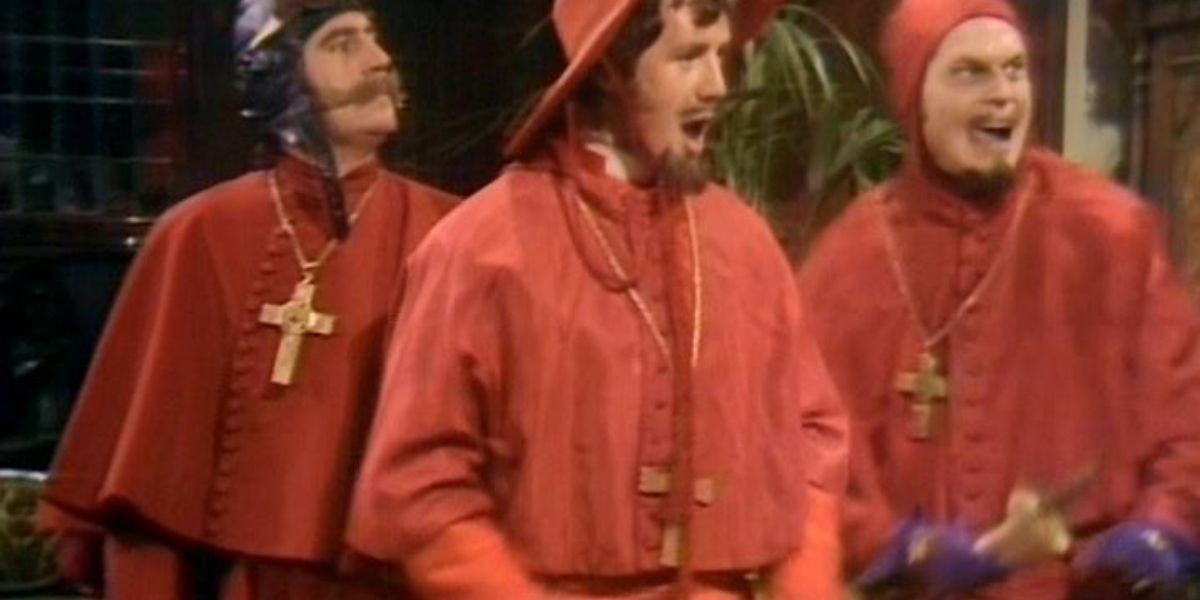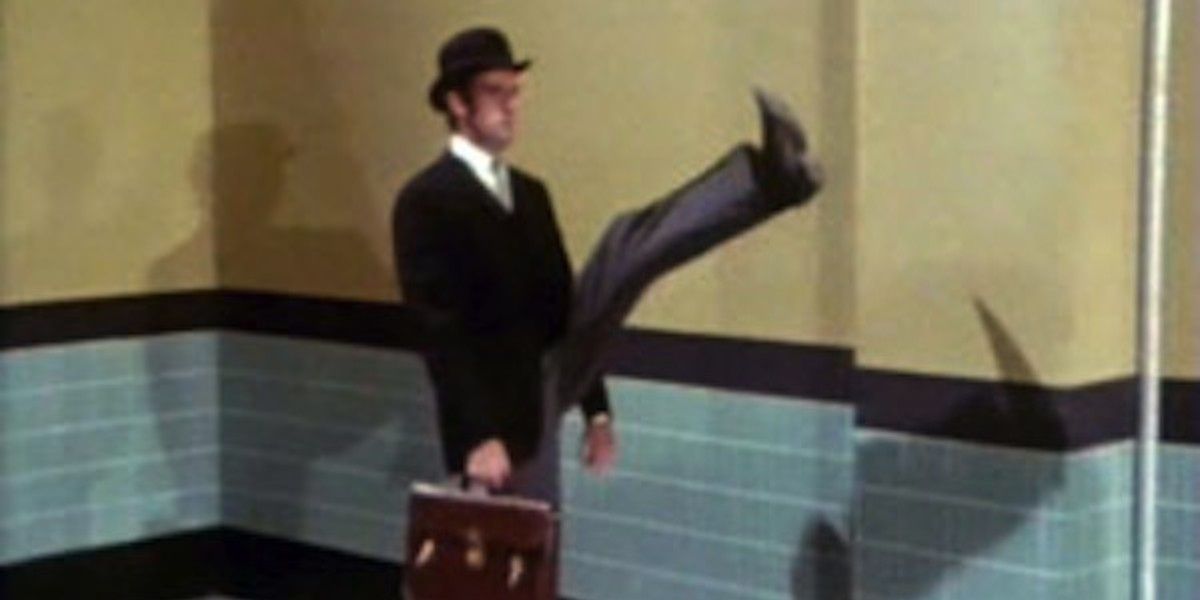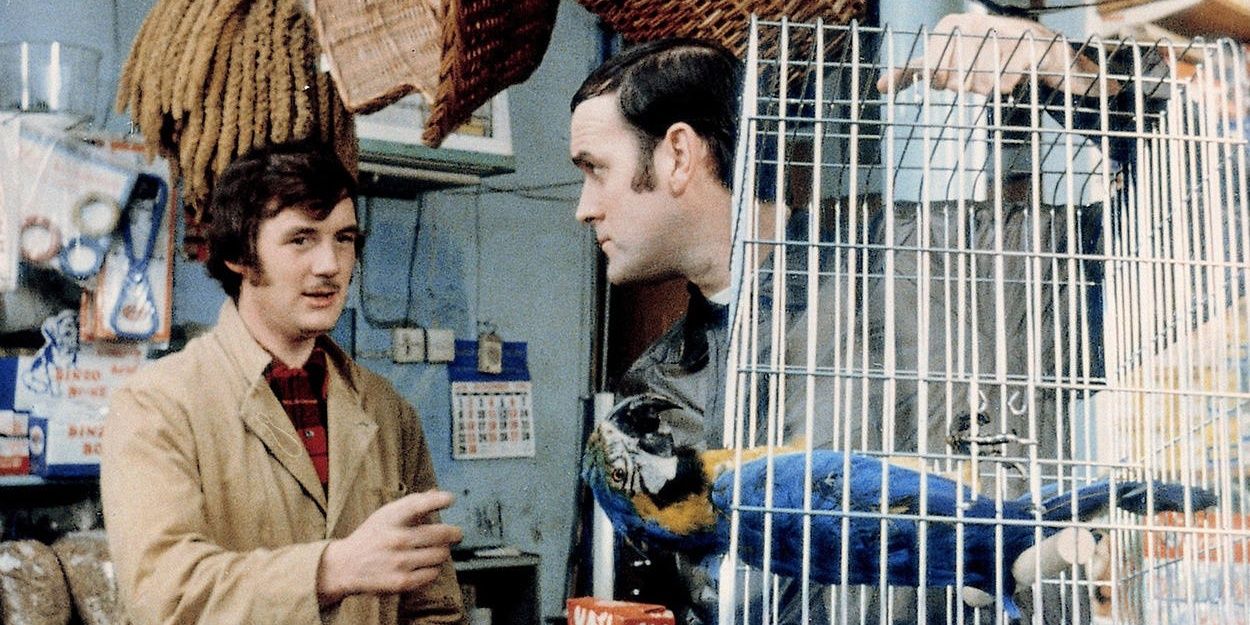Monty Python is the purposefully nonsensical name that the immensely talented British comedians John Cleese, Michael Palin, Eric Idle, Graham Chapman, Terry Jones, and Terry Gilliam chose to take for their collective comedy troupe specializing in surreal visuals and dark comedy.
The group slowly became a globally-recognized phenomenon, beginning their joint career with a successful sketch comedy television series that later launched a string of successful films. We'll be focusing on their series, Monty Python's Flying Circus, today, as we decide which of their many creative (although, admittedly, very strange) sketches were the most influential upon society, culture, politics or just life in general.
Funniest Joke in the World
One of Monty Python's most popular sketches, this one envisions a future where comedy is used as a weapon of warfare after a "Killer Joke" that causes people to laugh themselves to death is unveiled, resulting in casualties around the globe. In reality, the only version of the joke given in the sketch is quasi-German gibberish, but if put into Google Translate, it yields the interesting result "FATAL ERROR", indicating even those at Google have recognized the impact of the sketch.
Jim Carrey, who has called the Python troupe "the Justice League of comedy", mentioned on the TV show Monty Python's Best Bits (mostly) that this sketch contained one of his favorite Python moments - the scene in which joke-writer Ernest Scribbler dies from laughing.
Argument Clinic
In this sketch, a man, played by Palin, pays for a service that will allow him to have a five-minute argument; after he and the specialist, Mr. Barnard, hurl contradiction and slander at each other (with some fast-paced witticisms finding their way into the mix), Palin's character pays for another five minutes of argument, only for Barnard to tell him it never happened, escorting him out of the room.
The way the Python team satirized the traditional nature of an argument by pointing out the problems with needless attacks on character and contradiction without evidence has made this sketch popular among English teachers. The sketch also introduced the idea of paid debate as a reasonable method of cognitive stimulation and advancement, as noted by famed UW-Madison philosopher Harry Brighouse in his 2013 work Monty Python and Philosophy.
Dirty Fork
This sketch takes place at a high-class restaurant, where a diner (played by Chapman) poses a simple query about a dirty fork which leads to a series of increasingly overdramatic displays from the manager and staff. The sketch is rather notable as one of the only Python sketches to end on a punchline, a practice the troupe was almost completely against (a card appears before the joke reading "And Now ... The Punchline!", reflecting the sketch's satirical nature).
Widely regarded as one of the troupe's best, the sketch is now used to teach melodrama as part of a state-approved course for 7-11-year-olds in England.
Nudge Nudge
In this sketch, a man, played by Idle asks a stranger, played by Jones, a series of questions about his love life. However, Idle's "questions" are actually veiled innuendoes that he, a virgin, is using to get information from Jones on what having intercourse with a female is "like". It's one of the Python's more bizarre and risqué sketches, but that didn't make it any less influential.
According to Idle, Elvis Presley, a long-time fan of Flying Circus, had described Nudge Nudge as his favorite sketch from the series - the popularity of the bit also led to the coining of the terms "nudge nudge" and "wink wink" to point out when a double entendre is being used in conversation.
Cheese Shop
Conceived by Chapman and Cleese, this well-known bit follows Cleese as a customer who he encounters a cheese shop that doesn't seem to have any actual cheese, as his requests for different varieties each time lead to the proprietor claiming that procuring that specific cheese is impossible (occasionally offering excuses such as "the van broke down" or "always get it fresh first thing on Monday").
The most time-honored and significant comedic moments are those that build upon a simple premise, and that is especially the case here, as the relatively simple Cheese Shop went on to inspire numerous parodies and callbacks. For instance, musician Weird Al Yankovic used elements of the sketch in his song "Alberquerque", and a wheel of Le Brouère cheese was placed on the first SpaceX Dragon reusable spacecraft in reference to the sketch.
The Lumberjack Song
Containing one of the comedy troupe's most popular songs, this sketch follows Palin (or in some versions, Idle) as a man dissatisfied with his current profession, who sings about his desire to become a lumberjack. Backed up by a small, elaborate male choir and with his girlfriend watching the performance, he accidentally begins revealing other details about his personal life, such as his passion for transvestitism.
It's yet another odd sketch to come from the Flying Circus team, although it's become famous since it first aired and is often used in pop culture alongside references to lumberjacking - e.g; in shows like King of the Hill, Mythbusters, and The A-Team.
Spam
This sketch takes place at a restaurant where nearly every dish contains spam in some way, shape, or form - as the customer's varying reactions (from Chapman's character's continued refusal of the various spam-filled menu items to a merry chorus of Vikings chanting "spam, spam, wonderful spam!") are documented.
Hormel, the creators of Spam, have long used the sketch's history for marketing purposes - although they were never particularly pleased with how the Pythons created an internet phenomenon (originating on Usenet) tying in their product with unwanted emails.
The Spanish Inquisition
This Python skit is largely memorable for one quote, perhaps the most oft-repeated line in the history of television sketch comedy. Following a group of fifteenth-century Cardinals who dash into various sketches completely out of the blue after the line "I didn't expect [the] Spanish Inquisition!" (which is used for when one is overloaded with queries from another) is said, the sketch was praised for its original premise and the basic idea of taking things too literally that it presents.
Of course, the Cardinal's signature line as they surprised the one who had uttered their name was a loud, triumphant "Nobody expects the Spanish Inquisition!"
Ministry of Silly Walks
The Pythons have always been unrivaled in their ability to create hilarious, original ideas, no matter how out-there the ideas seem to be. While this sketch is built on a ridiculous core premise - the British government has created a department solely for the creation of silly walks - the Pythons also realize that alone is not enough the sell the sketch's humor, and they pepper the sketch's script with their signature brand of comedy.
The "silly walks" segment became very popular - it was paid homage to on Futurama, and perhaps more notably, it is now believed to have caused a massive rise in popularity for the art of comedically presented gaits. It's probably the most memorable moment of inoffensive, unbelievably funny humor throughout the show's run.
Dead Parrot
Considered by many to be among the best comedy sketches of all time, the Dead Parrot sketch is the crown jewel of Monty Python, running for just six minutes and yet, during that time, clearly defining the troupe's specific brand of humor. It follows Cleese's character's attempts to return a dead parrot to a pet store, claiming it was clearly dead when he purchased it; while Palin's character, the shopkeeper, tries to convince Cleese's character that the animal has been alive all along.
Dead Parrot became so popular that even Margaret Thatcher referenced it (during a speech in 1990), and it's without a doubt the troupe's best-known work. Devoted fans of the series have it memorized in its entirety, and John Cleese once commented that when he forgot how the sketch went, he considered just going outside and asking a random person what his next line was.

